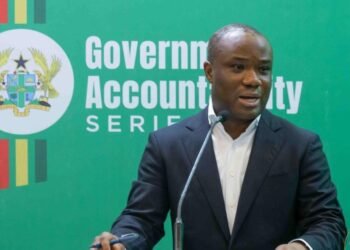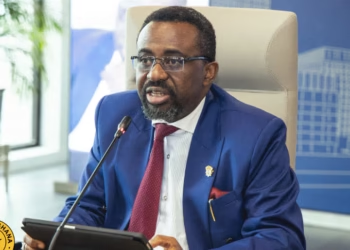The Bank of Ghana (BoG) has finally come to terms with the inescapable influence of cryptocurrencies in the country.
In a significant policy shift, Governor Dr. Johnson Asiama has announced that the central bank cannot stop the use of digital currencies, marking a new chapter in Ghana’s engagement with virtual assets. Instead of enforcing an outright ban, the BoG is now embracing a pragmatic path—one of regulation, collaboration, and controlled innovation.
For years, the BoG maintained a cautious, if not outright dismissive, posture toward cryptocurrencies. Through public advisories issued in 2018 and 2022, the central bank consistently reiterated that cryptocurrencies were not legal tender and warned financial institutions against engaging in crypto-related transactions. This created a regulatory vacuum that allowed crypto activities to thrive underground, exposing consumers to fraud and leaving authorities without oversight.
But in his latest remarks, Dr. Asiama signaled that this era of denial is over.
“Crypto is a big thing in Ghana. We can pretend to look the other way, but the reality is that it’s impacting,” he stated. His words reflect a growing realization that the global rise of digital assets cannot be ignored—only managed.
Regulation Over Repression
Rather than fighting a losing battle against decentralised technologies, the BoG now intends to regulate them. Dr. Asiama revealed that Ghana’s financial regulators—including the Securities and Exchange Commission (SEC) and the Ghana Revenue Authority (GRA)—are working together to create a comprehensive framework for the crypto ecosystem.
“As a regulator, and together with other regulators, we are joining efforts to ensure the benefits accrue to us while minimising the risks,” Dr. Asiama said. He compared the ubiquity of crypto to air, saying, “You can’t stop it. It goes everywhere. All you have to do is develop systems to minimise the risks.”

This is not merely a rhetorical shift. In August 2024, the BoG released draft guidelines for Virtual Asset Service Providers (VASPs), which included anti-money laundering (AML) requirements, mandatory registration, and internal control protocols. These were early signals of the central bank’s changing attitude.
Legislative and Institutional Reform
At the 2025 African Leaders and Partners Forum in Washington, D.C., Dr. Asiama confirmed that the central bank would commence full regulation of digital assets by the end of September 2025, pending the passage of the much-anticipated VASP Act.
This Act is expected to grant the BoG legal authority to license and supervise VASPs, in collaboration with the SEC. To support this, the BoG is setting up a specialised unit to oversee digital assets—ensuring stronger monitoring, better compliance, and enhanced protection for investors and consumers.
Ghana is now following the path already taken by regional peers like South Africa and Nigeria. South Africa, for instance, has already licensed more than 240 crypto firms under its regulatory regime. Ghana’s proactive stance could help bolster its financial reputation and fend off international scrutiny from bodies like the Financial Action Task Force (FATF), which requires crypto oversight to avoid greylisting.
From Risk to Opportunity
While cryptocurrencies have been associated with volatility, scams, and illicit finance, the BoG sees a broader opportunity. If properly regulated, digital assets can support cross-border transactions, reduce remittance costs, and drive financial inclusion—key issues for developing economies like Ghana.
Remittances to Ghana totalled over $4.5 billion in 2023, according to the World Bank. Cryptocurrencies, especially stablecoins, could revolutionise this space by offering faster and cheaper alternatives to traditional money transfer methods.
In parallel, Ghana’s Central Bank Digital Currency (CBDC) project—the eCedi—is still in its pilot phase. But BoG’s recognition of private cryptocurrencies as part of the financial ecosystem suggests a more hybrid future where state-backed and decentralised digital assets co-exist.
The next few months will be crucial. With the VASP Act expected to pass, Ghana is poised to become a leader in Africa’s crypto regulation space. However, implementing this framework will not be without challenges. The decentralised nature of cryptocurrencies makes enforcement difficult, while consumer protection remains a pressing concern.
READ ALSO: Trump Slams ‘Sloppy’ Brexit Ahead Of UK State Visit























